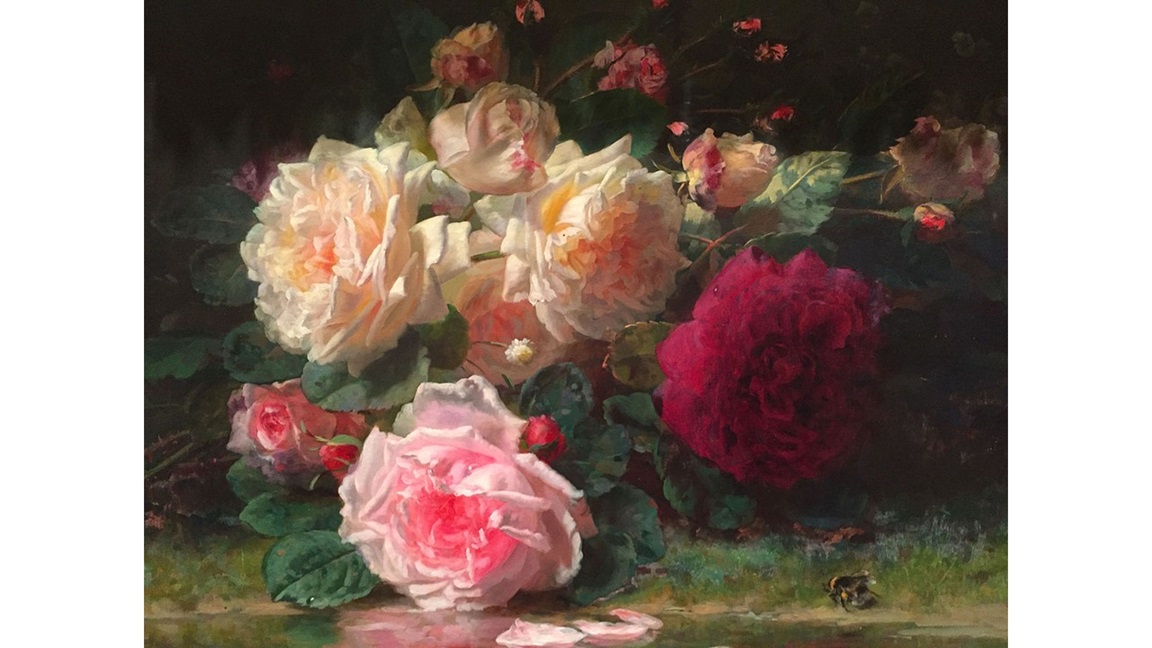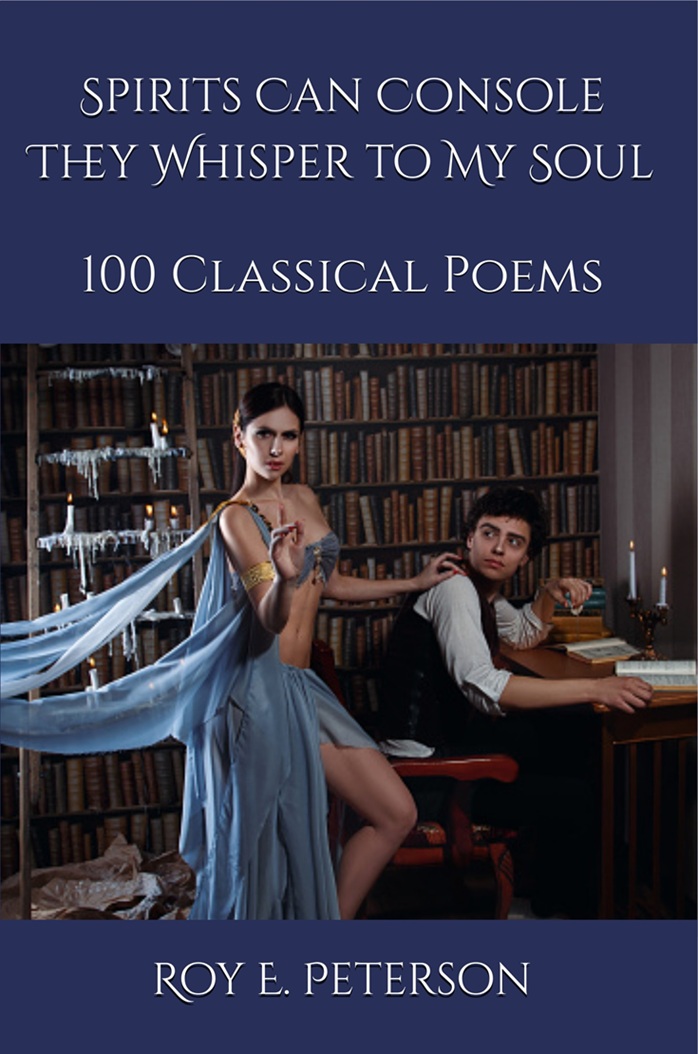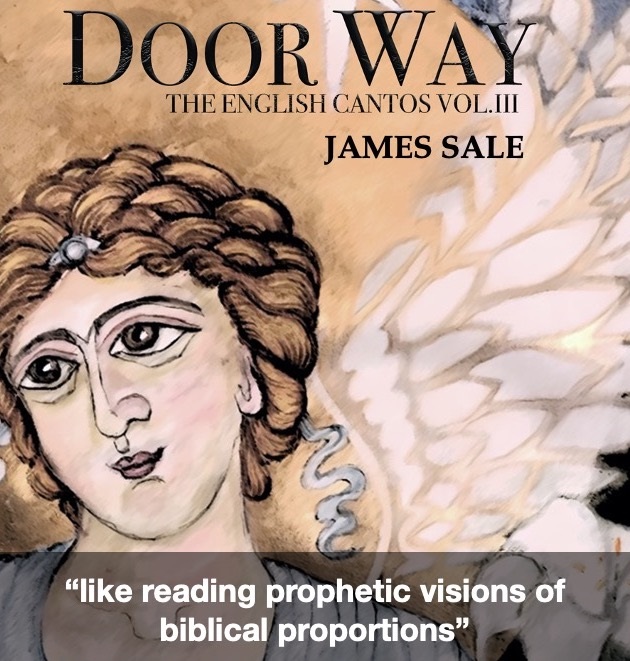.
Paradise Island
Some years ago, from cliff top and from shore,
a flock of birds that never touched the sky
looked out upon an ocean ship that bore
a biped crew from whom they could not fly.
These creatures, armed with cudgel, club and gun
made landfall on this isle twixt West and East.
The flightless relics soon were overrun
by half-starved sailors, eager for a feast.
Those birds remaining found their fledglings’ nests
exposed, the brush denuded by the axe,
or rodent-ravaged, lost to ship-borne pests,
which stopped the fabled dodo in its tracks.
__A honeymooners’ paradise now boasts
__this mascot to extinction’s many ghosts.
.
.
Paul A. Freeman is the author of Rumours of Ophir, a crime novel which was taught in Zimbabwean high schools and has been translated into German. In addition to having two novels, a children’s book and an 18,000-word narrative poem (Robin Hood and Friar Tuck: Zombie Killers!) commercially published, Paul is the author of hundreds of published short stories, poems and articles.

















I love the phrase “extinction’s many ghosts”.
Thank you Cynthia.
A charming tribute to the dodo, Paul, and I second Cynthia’s comment. I think there are currently afoot efforts to bring back the dodo, so who knows–we may eventually have the opportunity to regret its regeneration as we now regret its demise.
Thanks for the comment, Julian.
There’s the possibility of cloning from viable dodo DNA found in bones from a Mauritian swamp, but why would someone want to do this except because they can. The dodo’s habitat has gone, the bio-environment has changed, and all the factors that made the dodo extinct are still in place.
Paul, I love this perfect sonnet because it reminds me of a wonderful time and place. There was a dance hall in Cut and Shoot, Texas in the 1960s. Every Saturday night there was a fine time to be had there for a dollar and your own bottle. The regular band wasn’t great but it was loud and good enough. Strangely, their main claim to fame was their song, “Doin’ the Dodo” which actually went along with some pretty wild moves! The guy that wrote it made up the moves too. I’ve searched it on Google to see if I could find the lyrics… no luck, but I do remember the gist of it… something about these ravenous birds that had already gone extinct on every other island. Also a verse about how a drunken Dutch crew of sailors made a dent in the population before their rats finished them off. Yeah, the ending was pretty sad… something about if you’re a dodo, you better grow bigger wings, learn to fly and, above all, avoid drunken Dutch sailors and rats… Anyway… thanks for the memories!
Thanks for commenting, Mike. That does sound quite wild, a bit like doin’ the Crocodile Rock.
The ‘dodos’ on other islands were actually different species of bird known as solitaires, but these were only a few of the dozens of species that died out because their niche environment was invaded by humans, rats, cats and dogs.
Yes Paul, too bad the dodos didn’t eat the rats into extinction!
It is interesting that of all the species that have ever lived on earth, from the smallest to the largest, more than ninety-nine percent (99%) have gone extinct. We didn’t kill them all!
As far as those dreaded scientists know, dodos ate fruits and nuts, Mike, so rats would have been off the menu.
From what I understand, dodos were opportunistic eaters. They also, apparently, ate crabs and fish. I think rats would have been a tasty new opportunity. Too bad it didn’t happen… at least enough.
Paul, you have created a slick yet telling narrative that glides along as smoothly as a tilted puddle of mercury. There is also an understated, yet overarching sadness for both the world’s loss and for the creatures themselves. As Joni Mitchell once sang, “Don’t it always seem to go, that you don’t know what you’ve got till it’s gone.” A pair of relevent post-war slogans also coome to mind: “Lest we forget” and “Never again.”
Thanks for commenting James, and for the tilted mercury simile.
The loss of habitats, and therefore of biodiversity, is indeed worrying. What’s particularly sad about the dodo’s case is the weird kind of victim blaming that goes on, i.e. that the bird should have been able to fly, or even that being somewhat strange-looking, ugly even, made it less worthy than other creatures to continue existing on the planet.
Dodo… I almost forgot, how cute you were not! Is it even possible to bring them back? I enjoyed your sonnet Paul.
Thanks for commenting, Norma.
I get the impression our knowledge of what dodos looked like is limited. The pictures we have, like in Alice’s Adventures in Wonderland, somewhat exaggerated the bird’s appearance. It may also have been that the bird ate voraciously when foods were seasonally available, which made it seasonally a bit on the porky side, as would be an overfed captive bird.
I am amazed you even thought of the dodo let alone write such a compact meaningful history of what happened to them. Wonderful poem.
Thanks for your positive comment, Roy.
As I recall, someone wrote a dodo poem about a year back, which also generated a lot of commentary.
I believe the idea came to me when a certain news channel was advertising the beauty of Mauritius as a holiday destination, yet shunning any mention – quite understandably – of the island’s infamous past.
This is an expertly crafted sonnet, with perfect and unhackneyed rhymes. I agree with Cynthia that the last line is superb.
Before the coming of humans to Mauritius, the dodo had no natural predatory enemies. It could easily afford to grow fat, lose the ability to fly or fight, and become a slow and lumbering creature without an instinctive will to live.
Nature does not mourn extinctions. It just shovels them under. He who has ears to hear, let him hear.
Thanks for your comment, Joseph, I’m glad you liked it.
I always wonder what would happen if aliens arrived on earth. Would they want to interact with humans, or just look upon us as a primitive creature to be utilised as a food source.
I also admire this sonnet, Paul. It’s indeed well-crafted but when grabs me is the tone. For me it defies expectations by being neither sentimental nor condemnatory; it is not emotional but I cannot say that it is completely detached either. It is admirably restrained and, if pressed, I would elaborate by saying that it has a mildly wry ironic tone (your title is a clue here) which only grows almost imperceptibly sarcastic with the honeymooner paradise/boast (as the dodos’ tragedy is contrasted with fatuous triviality.) Your speaker, though not indifferent, simply reports the nonnegotiable facts here albeit with the barest understated hint of regret and what I see as self-constrained judgment.
You’re quite right, Brian. The detached tone tells it like it was for numerous species during the age of exploration and beyond.
As I said in another comment, I saw Mauritius being advertised as an ideal holiday destination, and know that folk in southern Africa like to honeymoon there if they can. This fixation with disregard for what happened on the same island for the hapless dodo formed the basis of the poem.
A beautiful sonnet about a tragedy. I will never think of that island in the same way again and when I do think of it or read about it in any way, I will always remember your poem and the despicable dodo disaster upon which the clueless and carefree endlessly frolic.
Thanks for commenting, Vicki.
It’s strange that you use the word ‘clueless’. While I was teaching in Saudi Arabia, I wrote a comprehension passage that included the dodo, and discovered that in the Middle East folk haven’t heard of the bird.
It’s a bit like in the West we all know about Marco Polo, but have never heard of Ibn Battuta, a contemporary traveller from Morocco, who travelled far more extensively and had far more exciting adventures, including being shipwrecked and sold into slavery.
Mr. Freeman, there are so many things to admire in your craft: the perfect flow, the narrative, and phrases like “flightless relics”, “biped crew”, “fabled dodo”, and definitely “extinction’s many ghosts”. It’s sad that these birds have gone extinct. I pray the same fate doesn’t befall the remaining tigers and black rhinoceros (although man’s horribility and greed know no bounds). You have delivered a beautiful sonnet with a succinct closing couplet. Also, I smiled after seeing the use of “twixt” after a long time.
Glad you found so much in this poem, Shamik, and fingers crossed for the tiger, the rhino and all the other species on the brink. Glad too I made you smile – ‘twixt’ is a favourite word of mine.
This is one of those delightful, educational pieces that should be on the school curriculum. The poor old Dodo doesn’t get much of a mention these days, but his demise is a lesson to us all. Thanks Paul for a most thoughtful sonnet.
Thanks, Jeff. As I’ve mentioned above, outside the West, the dodo is unheard of, and unfortunately because of its appearance has become rather a figure of fun in Western culture – see Alice’s Adventures in Wonderland and the original Ice Age movie.
As Shamik implies, it’s probably better to focus on those endangered species like the tiger, yet we shouldn’t forget the cautionary tale of the dodo.
Paul, I love this sonnet. It reminds me of a lesson we had at school on the conservation and preservation of threatened species. We have a whooping crane project close to us on the coastal plains… this once-dwindling species is now growing by the year, and I love to photograph them. I like the dodo’s eye view and I particularly like the closing couplet. The ghosts of dodos still haunt many, and perhaps they should. Your admirably crafted sonnet has inspired two poems of my own… I hope you get to read them soon and I thank you for the inspiration.
You’re welcome, Susan, and I look forward to reading your dodo poems.
Yes, hunting and habitat loss almost did for the whooping crane. Glad to see it’s bouncing back.
I once saw a stuffed dodo in the Peabody Museum at Harvard University. It was a rather large bird, and I wonder, if the Pilgrims had encountered those instead of wild turkeys, how different our Thanksgiving Day customs might have been. What would a dodo taste like, and would eating it make us want to take a nap? These questions may still be answered if the Jurassic Park genetic engineers do their job.
The dodo evolved to fill a niche amidst a balanced island community. With no predators on Mauritius, its wing size and strength allowed it to evolve into a flightless bird. Then men, rats, cats and dogs arrived and the parameters changed.
Of course, in America the same fate of extinction befell the passenger pigeon. At certain times of the year, the skies of eastern America were black with these birds, much like the plains thundered with the hooves of countless bison. Unfortunately for the passenger pigeon, it was gregarious in nature. Once flock sizes were reduced to a certain level, as happened due to railroad expansion and Americans blasting the birds out of the sky to be taken to the burgeoning cities as a cheap food source, the bird was doomed.
If my memory serves me right, the last passenger pigeon of the hundreds of millions, if not billions that existed before Europeans arrived in America, died in 1912, was stuffed, and is in the Smithsonian Museum.
As for the Peabody Museum, CB, it’s not a stuffed specimen of a dodo they have, it’s a model. This means the size of the bird, the colour of its feathers, its diet, etc., have until recently been topics of conjecture.
As for bringing dodos back, they would again be treated as a novelty, at zoos and nature parks, since their original habitat has gone.
Such a competent sonnet-packing of details into just 12 lines! Good one, Paul. It is by no means “unremittingly miserable,” despite what you said in your comment on my “Puffins.” I have an unfinished poem on a bird that may be extinct, and that I may have seen. You inspire me to take very special care with it.
Thanks for the comment, Margaret – and have you seen Happy Feet 2, with the puffin, yet?
I hope you can get back to your unfinished poem and hope to read it.
Yes, what an ironic twist at the end!
So true!
Thanks for reading and commenting, Louis.